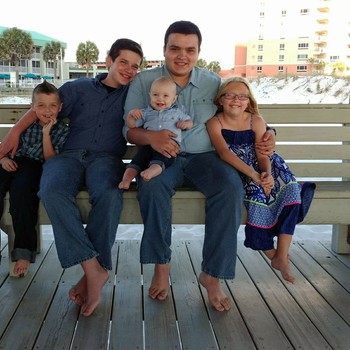In 3 consecutive positive integers, the square of the 1st integer is equal to the sum of, 7 times the second integer, and the 3rd integer. How to find all 3 integers?
1 Answer
The three integers are 9, 10, and 11.
Explanation:
I assume that you mean the first integer squared is equal to 7 times the second integer PLUS the third integer. Otherwise, there is no integer solution to this problem.
Using the information from the problem:
"Square of the 1st integer is 7 times the second integer plus the third integer"
#n^2 = 7(n+1) + (n+2)#
#n^2 = 7n + 7 + n + 2#
#n^2 = 8n + 9#
#n^2 - 8n - 9 = 0#
#(n-9)(n+1) = 0#
Since the problem states that the integers must be positive,
This means our three integers are
Final Answer
~~~~~~~~~~~~~~~~~~~~~~~~~~~~~~~~~~~
We can check this work by plugging the numbers we found back into our original problem:
"The square of the first integer equals 7 times the second integer plus the third integer"
#(9)^2 stackrel(color(red)?color(white)xx)(=) 7(10) + 11#
#81 stackrel(color(limegreen)sqrt()color(white)xx)(=) 81#

